
Four years ago, I was living my best life during a girl's trip in Mexico when I came down with a gnarly stomach bug — or so I thought. I'll spare you the gory details, but let's just say that was one nerve-racking flight back to Los Angeles. Once I got home, however, my symptoms continued to escalate. A few doctor trips and a course of antibiotics later, I was somehow in worse shape than when I left Mexico. Turns out, my life was in for a major plot twist.
After months of subsequent (not to mention costly) doctor's visits and specialist referrals, I learned this was all the culmination of an autoimmune disease I didn't know I had. In April 2019, I was officially diagnosed with ulcerative colitis — an inflammatory bowel disease similar to Crohn's disease — and in the midst of my first flare. It was hell, truly. A waning appetite led to months of me barely being able to eat, on top of frequent bathroom trips that caused extreme dehydration, weight loss, severe anemia, and a near-total loss of mobility. It was frightening, traumatic, and joy-draining. I don't recommend it!
In lieu of a full-on trauma dump, I'll cut to the chase. I feel loads better now! A brief hospital stint helped me kickstart my recovery. From there, I was determined to learn everything about my inflammatory disease. From noticing the various environmental and stress triggers, to what foods made me feel well versus which foods made me feel worse, I was in a constant state of diet iteration and experimentation to find an optimal anti-inflammatory diet to keep me healthy and feeling good. And four years later, I'm ready to share what I've learned so far.
Whether you're a fellow IBD/IBS warrior, or are simply looking for ways to improve your gut health, I'm hopeful that my anti-inflammatory diet tips will help you feel nourished and guide you toward more feel-good, intuitive eating. Let's get into it, shall we?
For starters, what is inflammation?
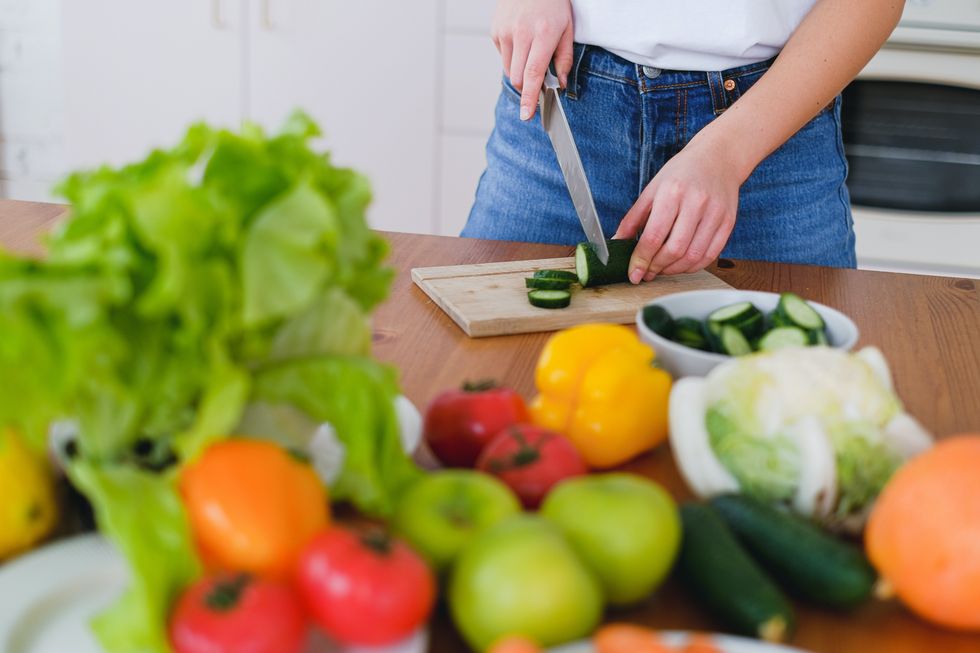
Inflammation is your body's natural response to anything foreign that it deems an "invader." The foreign trigger could be a virus or bacteria, pollen or other allergen, chemical or another irritant. On a base level, inflammation, or the activation of your immune system, actually helps protect you and your health. It's when your immune system goes into overdrive without any invader threat that it can become a problem and snowball into a chronic issue or disease. Persistent inflammation is what you want to avoid. You can actively seek ways to reduce the likelihood of inflammation through an anti-inflammatory diet regimen and stress management.
What should you eat on an anti-inflammatory diet?

Whether you want to reduce bloating or want to proactively adopt an anti-inflammatory diet, these are the ingredients you'll want to center your meal-planning around:
- Fatty fish like salmon and tuna
- Extra virgin olive oil
- Avocados
- Fruits like bananas, lemons, blueberries, and cherries
- Nuts like almonds, pine nuts, and walnuts
- Veggies like spinach, bell peppers, and romaine or butter lettuce
- Dark chocolate
What does a good anti-inflammatory diet grocery list look like?
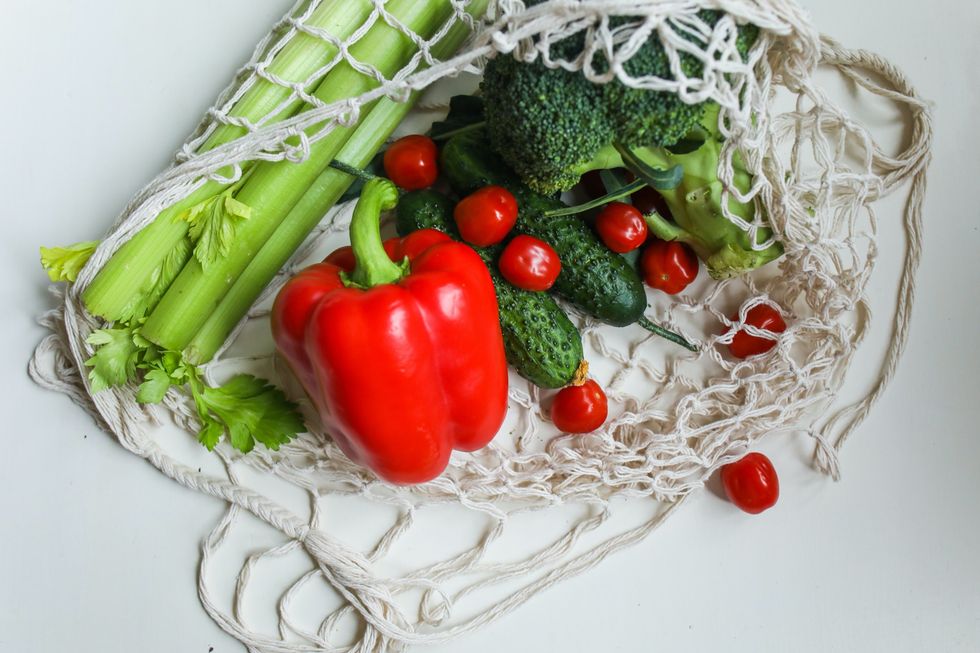
- Almond milk
- Bananas
- Berries
- Fresh orange juice
- Lemons
- Mush overnight oats
- Zero sugar Chobani Greek yogurt
- Gluten free and low sugar granola
- Avocados
- Hummus
- White cheddar cheese
- Feta cheese
- Gluten free bread crumbs
- Gluten free pasta
- Gluten free wraps
- Sourdough bread
- Rice
- Lean ground beef or turkey
- Salmon
- Tuna
- Turkey bacon
- Bell peppers
- Carrots
- Onion
- Garlic
- Cucumber
- Chickpears
- Sweet potatoes
- Extra virgin olive oil
- Coconut aminos (an amazing soy sauce alternative)
- Low sodium chicken broth
- Dairy free ranch dressing
- Romaine or butter lettuce
- Arugula
- Spinach
- Mushrooms
- Tortilla chips
- Seaweed snacks
- Dairy free ice cream
- Dark chocolate covered cherries
What inflammatory foods should you avoid?
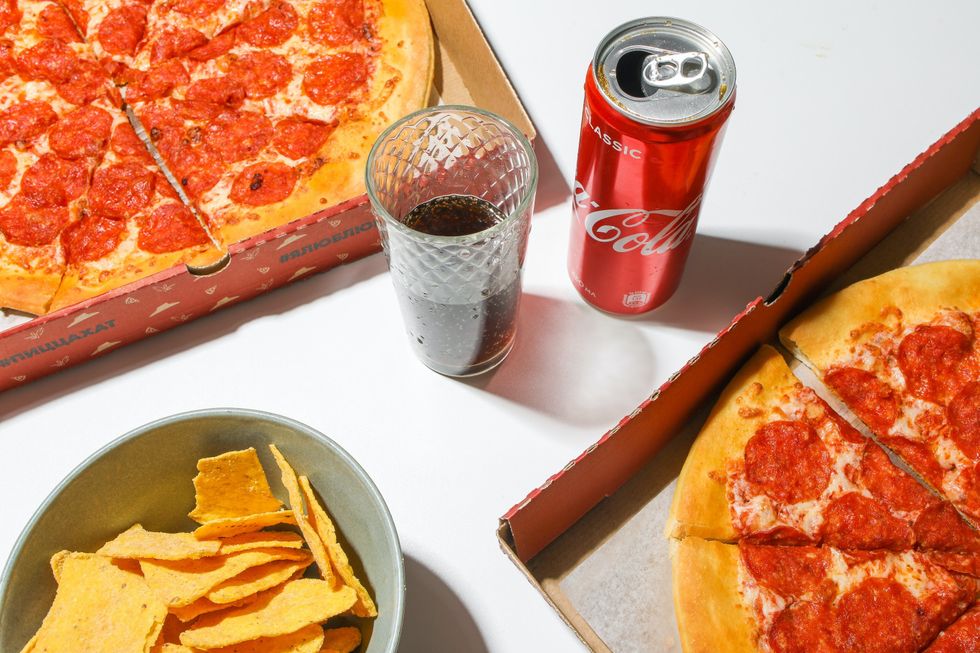
General wisdom says steer clear of sodas, refined carbs and processed grains, excess alcohol, deep fried foods, and anything high in added sugar as these tend to be the most inflammatory foods. Red meat is also typically on this list, but as someone with a history of anemia, I have beef in my diet for the iron boost.
I said goodbye to a lot of the foods I used to love because I slowly discovered they didn't love me back. Soda was a tough one to give up because I was a Diet Coke girlie through and through. I stopped drinking them altogether as the combination of caffeine and carbonation sent my digestive system into a tailspin. Gluten isn't always a bad guy, but in 2023 it's ridiculously easy to find gluten-free swaps for almost all of your fave items from wraps to pastas to cookies and treats. My favorite snack for many years was popcorn, but that's also a no-go as the corn kernels are brutal on my digestive system. Dairy can be a big trigger, so it's helpful to explore dairy alternatives for milk, butter, and cream. As for cheese, I'm thanking my lucky stars that I can tolerate cheddar and Mexican cheese blends with no trouble. Ricotta, burrata, or anything else that's more rich might be something to watch for as far as inflammatory foods go. Fried foods from fast food restaurants are also a no-go for me personally.
What should I eat if I have an upset stomach?
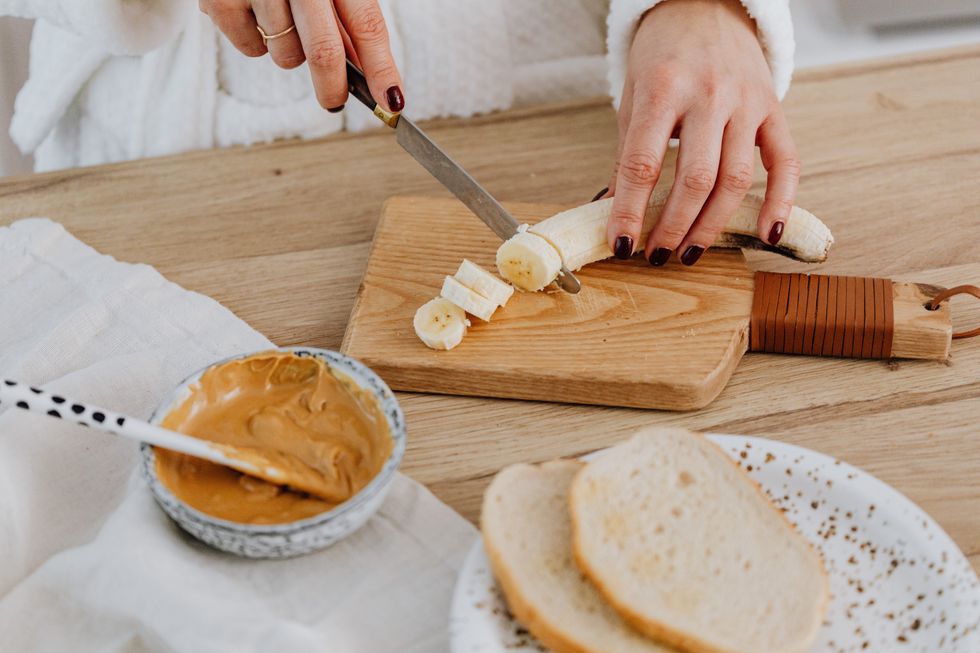
If you're experiencing any extreme digestive symptoms, you'll want to try the BRAT diet to help resolve any upset stomach or irritation (this could be from a stomach bug or food poisoning, or general diarrhea symptoms). The BRAT diet stands for bananas, rice, applesauce, and toast. These simple food items are low in fiber and therefore won't disrupt your digestive system. Extra hydration here is crucial, so don't forget to drink water.
What are some delicious anti-inflammatory recipes I should try?
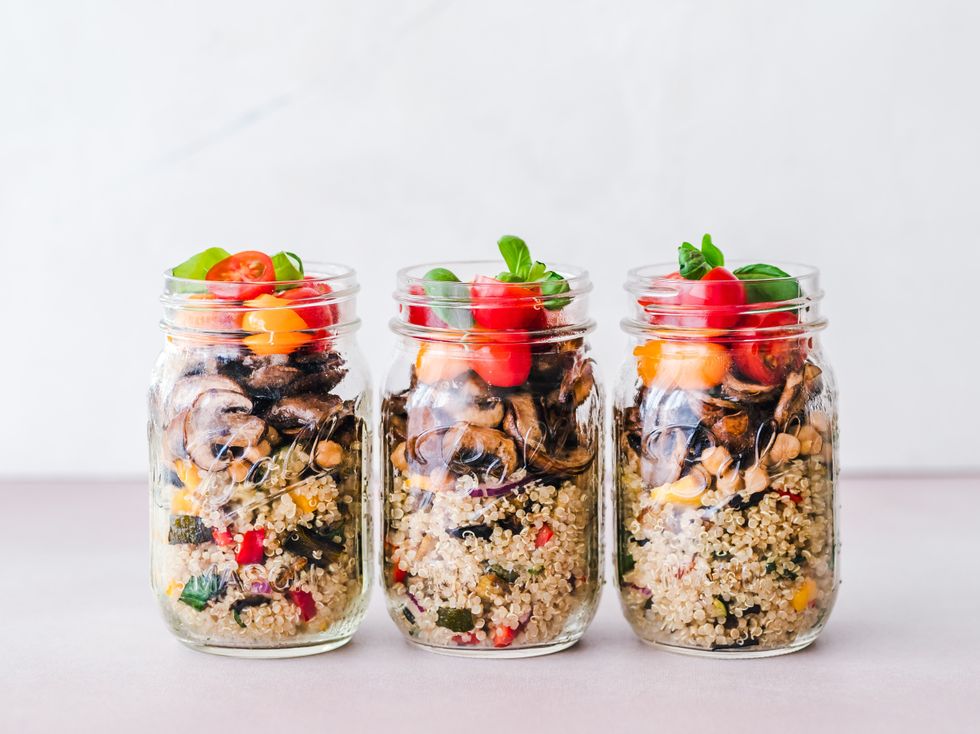
I'm glad you asked, because we have a treasure trove of delicious anti-inflammatory recipes and meal ideas. Some of my favorite include:
- 16 Easy Hummus Dip Recipes
- The Only Taco Salad Recipe You'll Ever Need
- Our Sweetgreen Harvest Bowl Copycat Recipe
- 32 Gluten-Free Breakfast Ideas
- This California Black Bean Burger Recipe Tops All Others
- Vegan Chickpea Lettuce Wraps
- A Chilled Strawberry Soup
- Vegan Spring Mix Salad with Lemon Tofu
- Salmon Recipes That Are Good For Your Brain & Heart
- Anti-Inflammatory Kiwi-Pineapple Smoothie
I hope this guide leaves you feeling empowered to kickstart your own tailored version of an anti-inflammatory diet today. It's worth noting that all bodies are different, and a multitude of diverse factors—from our genetics and gut bacteria to our lifestyle choices—means we all digest food differently. Thus no diet is a one-size-fits-all situation. If you have severe dietary and digestion concerns similar to those I referenced above, please seek out a gastroenterologist or other health professional for more guidance. If you have any delish anti-inflammatory recipes you'd like to share, leave us a comment or send them my way, that's @colourwars on Instagram.
What are your fave tricks for an anti-inflammatory diet? Let us know in the comments!
Header image via Pexels/Ella Olsson
0 Commentaires